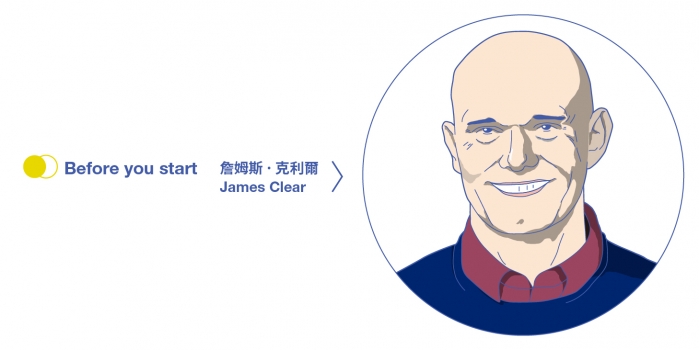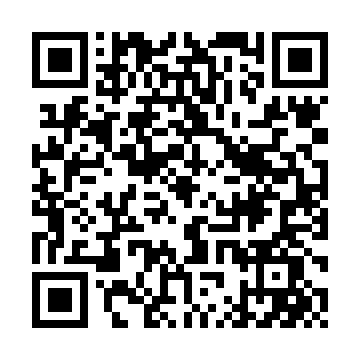
經典演講:用每天1%的改變,迎來最佳化的自己
WHO
知名習慣養成專家、紐時暢銷作者,著有暢銷書《原子習慣:細微改變帶來巨大成就的實證法則Atomic Habits: An Easy & Proven Way to Build Good Habits & Break Bad Ones》,已翻譯為40種以上不同語言,在全球銷售超過一百萬本。
WHAT
詹姆斯‧克利爾經常受邀至各企業、球隊演講,如NFL、NBA、MLB的球隊,及美國運通、麥肯錫、LinkedIn、本田汽車等。從他的演講中,除了偷師詹姆斯‧克利爾的習慣養成心法,也可以從演講中一探他強大的分類、歸納能力,再加上大量實例、故事佐證,讓聽者在不知不覺中有條理地吸收知識,受到鼓舞。
HIGHLIGHT
在1% Better Every Day這場演講中,詹姆斯‧克利爾先分享了英國單車隊的故事。約2000年代時,英國單車隊從未贏過環法自由車賽,而後他們雇用了Dave Brailsford想扭轉劣勢。這位教練認為,在每件事情中做到1% improvement,最後就能達成目標。Dave Brailsford除了對車隊進行基本訓練、改善裝備,還測試了最適合車手的訓練方式,甚至車手睡哪一種枕頭最舒適,就帶著出賽。他原本預期在5年內帶領車隊拿下環法自由車賽,沒想到在第二年就奪牌,印證了每日的improvement ,接著成為tiny habits,進而形塑了我們的表現。
“If you were able to improve by 1% each day for an entire year and those gains compound, you would end up 37 times better at the end of the year.”

*節錄自1% Better Every Day
...everybody wants a transformation, right? Everybody wants a radical improvement, and rapid success, but we fail to realize that small habits and little choices are transforming us every day already. That the times when you make a choice is slightly better, slightly worse, a little mistake, or a small error, 1% better or 1% worse that these things compound over time.
And habits are the compound interest of self-improvement. Good habits make time your ally. Bad habits make time your enemy.
...there are four stages of habit formation. I’m going to take you through each of those four. All right. So the four stages are: Noticing, Wanting, Doing, and Liking.
⋯⋯每個人都渴望轉變,對吧?我們都想要一夕成長、快速達到成功。但我們往往忽略的是,每天的微小習慣及選擇,當我們做出每個選擇,都帶來一點點進步、一點點退步或是一些小錯誤,最後組成1%的改善或是1%的惡化。
習慣是自我成長的複利,好的習慣讓時間成為你的盟友,但壞習慣則讓時間變成你的敵人。
⋯⋯習觀養成有四個階段,今天我們一一來談。好,這四個階段就是:Noticing
、Wanting、Doing還有Liking。
NOTICING
So one of my favorite things about noticing, and one of my favorite strategies for discussing it, it’s called Implementation Intentions. And there are hundreds of studies on this… And this is the insight: many people think that they lack motivation, when what they really lack is clarity. They think that they need to get more motivated and that they need willpower in order to execute on a habit. If I just felt like writing, if I just felt like meditating, if I felt like working out, then I would do it.
But in fact, they don’t have a plan for it, so they wake up each day thinking, “I wonder if I’ll feel motivated to write today,” “wonder if I’ll feel motivated to workout today.” But instead you can take the decision-making out of it by explicitly stating when, where, and how you want to implement the habit.
So here’s how I did this with my writing habit. I decided that on November 12, 2012 which was a Monday if you check, that was going to be the first day that I published an article. And I was going to publish every Monday and every Thursday. That was my implementation intention. That was my specific plan.
Didn’t matter how good or how bad it was; it didn’t matter how long or how short it was. It didn’t matter how I felt about it. If all I could do was write three good sentences that day, then that was getting published.
But I did that, and I did it for three years. And that was how the site grew. It was just that core habit that drove the growth.
我喜歡用「實施意圖」這個策略來討論noticing ,目前也有上百個關於「實施意圖」的研究,這邊的觀點在於,很多人認為自己缺乏動機,但他們只是想得不夠透徹。他們認為自己需要更強的意志力執行一個習慣,如果我想寫作、如果我想冥想、如果我想運動,那我就會去做。
但事實上,他們並沒有計畫,所以每天早上起床,他們不知道自己有沒有動力寫作、想不想運動。其實我們可以將時間、地點以及如何實行直接訂出來。
以下是我建立寫作習慣的方式,我在2012年11月12日週一決定開始每天發佈一篇文章,並在之後的每個週一於週四發文,這就是我的實施意圖、我定下的確切計畫。
無論寫出來的成果好或不好、文章長或短,我的感受不重要。如果我每天可以寫出三句好句子,就會發佈出去。
我做到了,而且持續三年。這就是我如何建立起我的網站,我用習慣驅動成長。
Failure Pre-Mortem
So here’s a little strategy that I like to use to make sure you can come up with a better plan of action. And it’s called the Failure Pre-Mortem.
So the way that it works is you think about the habit, the project, the goal, whatever the most important thing is that you want to work on. And I want you to imagine fast forward six months from now and you fail, and then tell the story of why you failed, what happened, what challenges did you encounter? What was that took you off course?
When I do this with businesses, sometimes we call the kill the company exercise. So everybody sits around, thinks about ways to kill the company in the next six months.
And once you have all that stuff laid out on the table in front of you, you can start to make better choices about how to develop a plan. You can start to have if-then plans.
這邊介紹一個小策略,讓大家更知道如何制定計劃,這個策略叫做 Failure Pre-Mortem
這個策略執行的方式是,你必須先想一件最重要的事,最想完成的事,可能是習慣、專案、目標等。接著,我要你想像在6個月後你失敗了,並且告訴我們你失敗的故事,中間發生什麼事、遇到什麼挑戰?是什麼讓你失敗了?
當我在企業實施這個練習時,有時候我們會說這是「毀掉公司」練習。每個人坐著,開始想各種讓公司在6個月內失敗的方式。
同事們都把想法說出來之後,你就可以開始制定出最佳計畫,也就是「若則」計畫法。
WANTING
One of the most overlooked drivers of habits and human behavior is our physical environment.
Many of our desires are simply shaped because we have an environment that shapes us in that way.
But if you’re constantly fighting against those forces, it’s going to be very hard to follow through.
So don’t rely on willpower and self-control. It’s a lot easier to stick to better habits when you’re presented with better options, right?
You want to read more? When you make your bed in the morning, take the book you want to read and put it on top of your pillow. When you come back that night, pick it up, read a few pages, and go to sleep.
So the core idea here is that you want to put more steps between you and the bad behaviors, and fewer steps between you and the good behaviors. And it is far easier to stick to good habits if you are living in an environment that is inclined to push you in that direction.
在驅動習慣及行為這件事上,最常被忽略的要素就是硬體環境。
許多慾望是被環境影響的,因為環境如何而導致我們想做某些事。但如果我們只是「用想的」去持續對抗這種力量,會很難維持。所以不要依賴意志力我自制力,要維持好習慣,其實有更間單的選擇。
你想多閱讀嗎?早上整理床舖時,放本想讀的書在枕頭旁,每天睡前拿起來讀個幾頁再睡。
核心概念就是,把自己跟壞習慣的距離拉遠,跟好習慣的距離拉近。如果環境就能促使你維持好習慣,執行起來會簡單得多。
DOING
So often when we think about habits, goals, routines, achievements; it’s all about the milestone. We think about how much weight we want to lose, how much money we want to earn, and how many subscribers we want to have; it’s all fixed on the finish line.
But instead if you can optimize for the starting line and make it as easy as possible to get started, often the outcomes just come as a natural result. ...that means learning how to start is incredibly important.
I want to give you a little strategy for doing that. I’d like to call it the Two-Minute Rule.
... if it takes two minutes, just do it now. So like throwing in the laundry or washing a dish or calling somebody back, it takes two minutes or less, just do it right away; don’t plan it; don’t wait; just do it now.
常常我們要建立習慣、目標、慣例或是成就,我們會直接想到建立一個里程碑。我們會想要瘦幾公斤、要賺多少錢、要有多少訂閱數等,這些固定的「終點線」。
但如果我們優先去想「起點」,並讓啟動這步越簡單越好,成果便會很自然地發生。⋯⋯也就是說,學著如何「開始」非常重要。
關於這一步,我要給你們一個小策略,我稱之為「兩分鐘守則」。
如果這件事只需要兩分鐘,那麼現在就做。比方說把衣服丟進洗衣機、洗碗盤或是叫某人,這些動作甚至不用花兩分鐘,所以不要計劃、不要等,直接做就對了。
LIKING
So the only reason that we repeat behaviors is because we enjoy them and because we like the reward. If we don’t enjoy the experience along the way, we’re unlikely to stick with it.
And that means that you need to figure out ways to bring a reward into the present moment, because good habits have a problem. And that problem is that for good habits, the immediate consequence is there. There’s a cost that happens in the moment but the reward is often delayed.
If I go to the gym now, it’s cost me time and energy and effort. But the reward is I’ll be fit three months from now or not get sick ten years from now or so on. The reward is delayed.
Bad habits are often the reverse. If I eat a doughnut right now, the benefit is that it tastes great and I get a hit of sugar and it’s awesome. And the consequence is delayed, right? I get overweight three weeks from now, or three months from now and so on.
So you need to figure out how to bring the reward into the present moment to stick to a good habit. There are many ways to do this, but I’m just going to share one today.
So here’s what I think you should do: get a wall calendar, where you can see every day of the year mapped out on it. And then any day that you do your task, I want you just put an X on that day. And you’ll have a couple false starts here and there. But at some point you’re going to get a little bit of a chain going, right, you get four or five, six, seven, eight days in a row. And at that point your only goal becomes to: don’t break the chain. That’s a way to get an immediate hit and a little bit of a reward by tracking it.
我們會重複做一件事的原因是因為我們樂於其中、因為我們喜歡最後的成果。如果我們無法享受過程,便很難維持習慣。
這代表我們需要想辦法將最後的「獎勵」帶到目前的過程中,因為這是培養好習慣時會面對到的問題,那就是有好習慣的結果我們知道,但我們需要經過一些時間才享受到好的結果。
如果我現在去健身房,需要花時間及體力,但是成果是我三個月後會變結實,或是十年內不會生病之類的,要花時間才能迎來成果。
壞習慣則通常相反,如果我現在吃一個甜甜圈,好處就是我馬上會覺得很好吃,而且還有糖分帶給我的興奮感,後果反而不會立刻感受到對吧?三週後我變得過胖,或是三個月後之類的。
我們必須想到一個方式,讓自己有立即的小獎勵,以維持好習慣。有很多方式可以運用,今天我分享其中一個。
以下是你可以做的:買個壁掛月曆,可以一次看到每一天的那種,假設今天你完成了一件任務,就在當天的格子打叉,一開始可能會這天有、那天沒有,但你的X會開始連線,可能是你連續五天、六天、七天、八天都有完成。此時的關鍵就是,不要讓你的X斷掉。這就是一個得到立即反饋的方式,透過紀錄得到一點獎勵。
NEVER MISS TWICE
Now I like to add one more thing to this: which is never miss twice. So, many people will get a chain going and then they fall off track and they feel bad about it, feel like oh, I ruined it; I had this great thing and now it’s over. The streak is gone.
But what you find when you look at top performers is not that they don’t make mistakes; they make mistakes just like everybody else, but they can just get back on track more quickly.
The goal is not to run a marathon; it’s to become a runner, to become that type of person, to develop an identity. And the way to being something or becoming someone is through doing something.
Your identity emerges out of the habits that you have.
And so here’s the secret to this talk: it’s not just about getting you to make small changes. It’s not just about putting a book on your pillow. It’s actually by getting you to believe something new about yourself; think what possible; think about yourself.
And habits are not only the method through which we achieve external measures of success, like losing weight, earning more money, or meditating and reducing stress.
They are also the path through which we achieve internal change and actually become someone new. They’re the path through which we forge the identity that we have, the deepest beliefs we have about ourselves and our sense of self.
And so if you can change your habits, you can change your life.
這邊我想補充另個要點:不要錯過兩次。許多人面臨紀錄中斷時會覺得挫折,好像自己毀了一切,覺得建立起來的東西都完蛋了。
但當我們去看一些成功的人,會發現他們也會犯錯,就像一般人一樣,但他們回到正軌上的速度很快。
我們的目標不是跑馬拉松,而是成為跑者,成為那種我們理想中的人,擁有自己的特性。只有透過「實踐」我們才能跑向目標。
你的習慣形塑了你是什麼樣的人。
這場演講的秘密在於:重點不只是微小的改變,不僅僅只是放本書在枕頭旁邊,其實你要相信自己的可能性,相信自己有新的發展。
習慣不只是帶領我們走向外顯的成功,比如減重或是發大財或是冥想減壓。
習慣可以帶來內在的改變,讓我們煥然一新。習慣是一條通道,讓我們逐步建立自己的樣子,看見最深層的信念,知道自己是什麼樣的人。
如果你能改變習慣,你就能改變人生。
參考資料:國家教育研究員雙語詞彙、學術名詞暨辭書資訊網、博客來、Cambridge Dictionary, The Singju Post, JAMES CLEAR
編輯/馬婉娟
本文收錄於英語島English Island 2020年8月號
訂閱雜誌
| 加入Line好友 |  |

 擔心生理健康,心理卻出問題?
擔心生理健康,心理卻出問題?